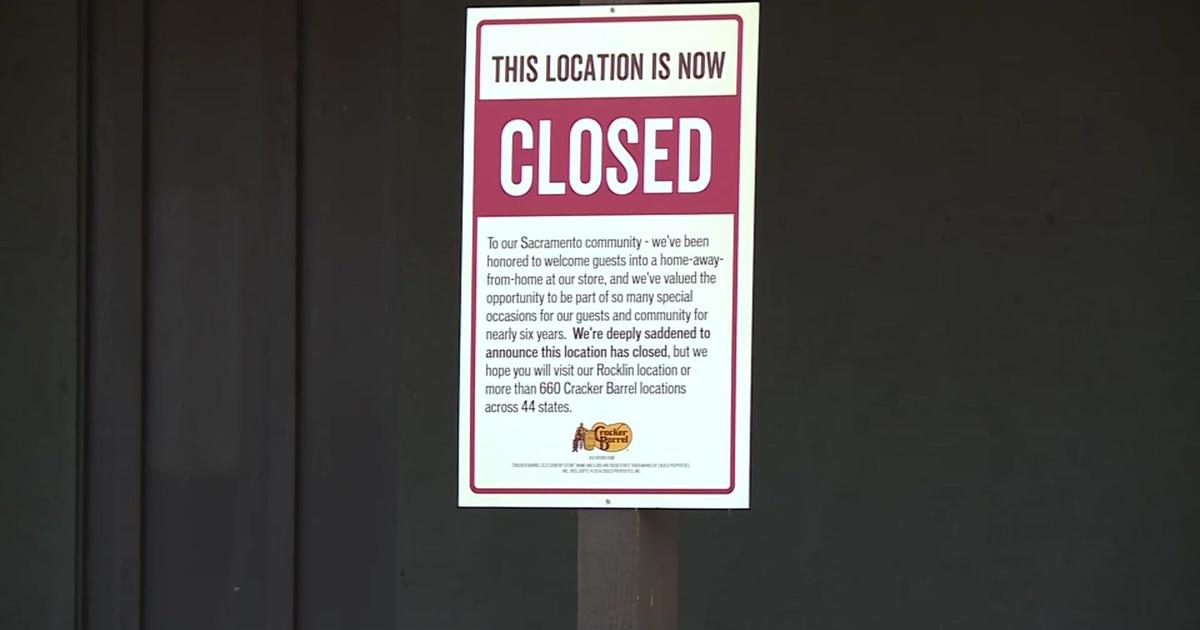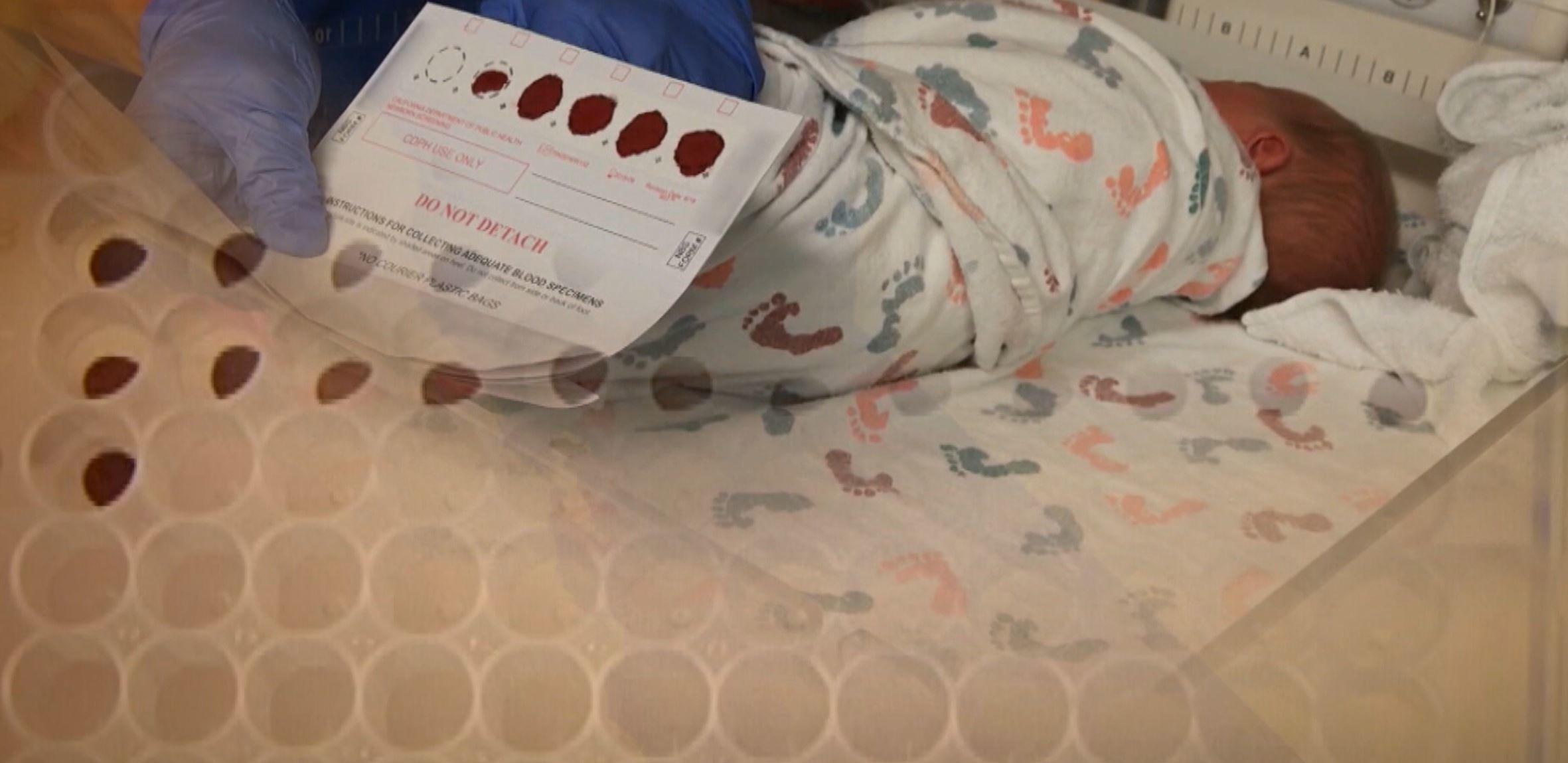Call Kurtis: Barred From Buying Sudafed?
SACRAMENTO (CBS13) -We went undercover with middle-school science teacher Richard McGuire watching him attempt to buy cold medicine from Rite Aid.
"I would like to get some Sudafed," said McGuire.
By law, the pharmacist asks for his driver's license but when she swipes it, "It won't let you sell it, eh. It won't let us do it right now," said the pharmacist.
McGuire's' told he can't buy the Sudafed.
"Why am I being denied?" He says they told him, "'You're on a government list of do not sell Sudafed.'"
We've learned there's no such government list. But since 2006, Federal law has required pharmacists to log the names and addresses of those buying pseudoephedrine's, a key ingredient in making methamphetamine.
But McGuire says he hasn't bought Sudafed in 20 years and insists he's no meth head.
"I'm a school teacher," he said.
The California Board of Pharmacy's Virginia Herold says the law limits how much you can buy each month. And it's up to each pharmacy how they log these sales; they use old school pen and paper, and some use databases.
"If you buy more than a specific amount you will be barred from buying anymore," and, "Each pharmacy has its own means of how they track this," said Herold.
We've learned Rite Aid is among 50,000 pharmacies using a privately run database called, Meth Check; it offers "real-time tracking" and "real-time blocking of illegal sales".
"But who do you go to, to try to clear your name of the list," asks McGuire.
We contacted Meth Check, which says "it processes 100,000 transactions a day and relies on data submitted by the retail pharmacy. If someone is denied it says you should ask the clerk why stores can provide customers with a support number."
But when McGuire asked the pharmacist, "Who do I get in contact with regarding this list?"
The pharmacist replies, "I really don't know."
Once we contacted Rite Aid, it told us, "Should a sale be denied by Meth Check, customers are provided with a printout telling them how they can contact Meth Check to inquire about their purchase attempt. But in this case, this was not a situation in which a transaction was denied. Rather, the magnetic strip of the driver's license was not able to be read."
While undercover McGuire's pushed back and the clerk manually entered his driver's license information and he got his Sudafed.
He doesn't like the hassle he faced just to get his cold medicine, and says of the system, "It's seriously flawed."
We wanted to know if it was something as simple as a magnetic strip flaw and what popped up on the screen denying McGuire. And why the clerk didn't enter his information manually to begin with?
Meth Check claims that it was a Rite Aid issue.
Rite Aid didn't respond and never answered that question.
The pharmacy board says an individual can only purchase 9 grams, which is about 3 packs.
Any pharmacy caught selling more than 9 grams in one transaction can face some hefty fines.
RITE AID STATEMENT
Based on the information we have been provided, this was not a situation in which a transaction was denied. Rather, the magnetic strip of the driver's license was not able to be read. Since the magnetic strip was not able to be read, the information required by law to complete the sale could not be obtained from the swiping of the driver's license. Therefore, the pharmacy associate was required to manually enter the required information in order to lawfully complete the transaction.
As a member of the community and one of the nation's leading drugstore chains, Rite Aid remains committed to taking appropriate actions to comply with the law and help address the methamphetamine problem while ensuring that we continue to serve patients with legitimate medical needs. These actions include utilizing the MethCheck system by Apriss to comply with federal and state law regarding sales of PSE. Rite Aid has a rigorous training program and policy and procedures in place for associates regarding the sale of these products.
We partner with Apriss and utilize the MethCheck system to monitor sales of these products. Should a sale be denied by MethCheck, customers are provided with a printout telling them how they can contact Apriss to inquire about their purchase attempt.
METHCHECK STATEMENT
If I knew the specifics of the transaction, we could tell you exactly what came through, if anything. Otherwise I can only say that perhaps nothing made it to us because the store point of sale system stopped it, or we may have received bad data that we could not decipher, and therefore rejected the submission.
-
Why does this database exist? The federal Combat Methamphetamine Epidemic Act (CMEA) was passed by Congress in 2005, in response to the outbreak of domestic meth production across the US. This Act limits the amounts of pseudoephedrine (PSE) and ephedrine (EPH) any one person can buy over the counter (OTC), and the amount that any retailer can sell to a single person. It also requires retailers to check the buyer's ID, and to record certain data on a log, and to make that data available to law enforcement upon request. This law does not apply to medicine dispensed by prescription.
-
How does the database work? The database receives the required information from the participating retailer in real-time, measures the proposed transaction against all other transactions in the database, and sends a recommendation to the retailer based on appropriate federal and state laws, all within less than one second. The submitted data is stored according to federal standards, and is accessible only by law enforcement agencies, per federal law.
-
How many customers have been processed using this database? This database is required in 32 states by law, and known as the National Precursor Log Exchange (NPLEx). In addition, most of the top 15 pharmacy chains utilize the MethCheck service, and thereby contribute their data to NPLEx. This helps prevent potential violations by individuals traveling from store to store, and state to state. NPLEx and MethCheck have existed for eight years, and process over 100,000 transactions per day. Millions of customers have been "processed" by the service.
-
How many customers have been denied? A tiny percentage of customers are denied, for reasons that vary from state-to-state. Some states have an age limit, smaller quantity limits, and/or block certain convicted offenders. Innocent customers may be blocked because they do not realize the quantity limits under law, or how much they may have purchased in the past.
-
What should customers do if they are rejected from purchasing these products? Ask the clerk why, and follow instructions provided as to contacting corporate offices. Alternately, stores can provide customers with a support number, transaction number, and link to www.nplexanswers.com to obtain further information. Ultimately, customers can contact Appriss if these measures are not sufficient.
-
How often are customers denied for invalid reasons? MethCheck and NPLEx rely on the data submitted by the retail pharmacy. If that data is correct, there is never an invalid reason for denial. It is the retailers responsibility under federal law to enter the data accurately.
-
What comes up on the database's screen when a customer is denied? It depends on the retailer and their proprietary point-of-sale. Regarding the Retail Portal Appriss provides to stores who choose to use it, the customer's identification, product description, the transaction ID number, and a message referring to the transaction exceeding the gram purchase limit.
-
What can a customer do if they are having a problem with database? Same answer as #5.
-
What kind of information can retailers offer a customer if they are denied? As stated above in the answer to #5, most of the chain pharmacies provide a support number to call on the receipt; other retailers provide the customer with the www.nplexanswers.com website and the transaction ID number to obtain more information on why they were denied.
-
Who is the data shared with or who can access the data? Only Law Enforcement Agencies have comprehensive access to the data per the federal CMEA. Retailers can access their own data only. The courts can access the data by court order only. No commercial entity receives or accesses the data, and it is not used for marketing or any other purpose other than as specified by law.



